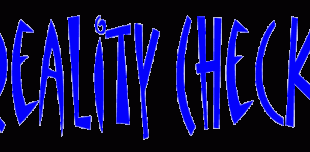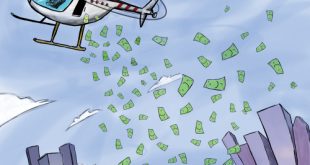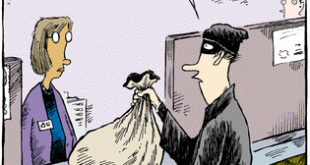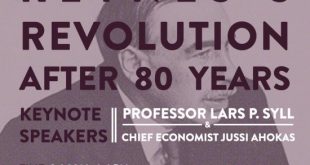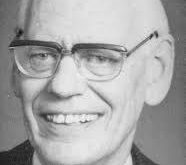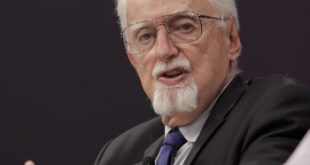Taking part of the debate on microfoundations among macroeconomists these days, I wonder if Heinz-Peter Spahn isn’t more on the right track than those who desperately offer more or less contrived defenses of the microfoundationalist programme: The crucial point however is: market conditions, which are presupposed in the model of intertemporal choice, are not given in reality. Distributing consumption optimally over time depends on the possibility of individuals to lend money on their...
Read More »Universal Basic Income Is Inevitable, Unavoidable, and Incoming
The last time I saw universal basic income discussed on television, it was laughed away by a Conservative MP as an absurd idea. The government giving away wads of cash responsibility-free to the entire population sounds entirely fantastical in this austerity-bound age, where “we just don’t have the money” is repeated endlessly as a mantra. Money, they say, does not grow on trees. (Only as figures on the screen of a computer). In this world, universal basic income seems like a rather distant...
Read More »The money multiplier – neat, plausible, and utterly wrong
The money multiplier – neat, plausible, and utterly wrong The neoclassical textbook concept of money multiplier assumes that banks automatically expand the credit money supply to a multiple of their aggregate reserves. If the required currency-deposit reserve ratio is 5%, the money supply should be about twenty times larger than the aggregate reserves of banks. In this way the money multiplier concept assumes that the central bank controls the money supply by setting the required reserve...
Read More »Keynes’s revolution
A small ray of hope
A small ray of hope I overheard a conversation between two high school students this morning. The first person was asking about which classes the second was going to take next. One of those mentioned was microeconomics. “Oh, that’s easy” said the first, “You just have to remember that it’s all rubbish – they want you to believe that people are rational, and that there’s all this perfection in the world.” “Really?” responded the second, “That’s really dumb. I wonder why they do that?” “It...
Read More »Long run demand effects
Long run demand effects In the standard mainstream economic analysis — take a quick look in e.g. Mankiw’s or Krugman’s textbooks — a demand expansion may very well raise measured productivity in the short run. But in the long run, expansionary demand policy measures cannot lead to sustained higher productivity and output levels. In some non-standard heterodox analyses, however, labour productivity growth is often described as a function of output growth. The rate of technical progress...
Read More »Axel Leijonhufvud on the road not taken
Axel Leijonhufvud on the road not taken The orthodox Keynesianism of the time did have a theoretical explanation for recessions and depressions. Proponents saw the economy as a self-regulating machine in which individual decisions typically lead to a situation of full employment and healthy growth. The primary reason for periods of recession and depression was because wages did not fall quickly enough. If wages could fall rapidly and extensively enough, then the economy would absorb the...
Read More »Macroeconomic just-so stories you really do not want to buy
Macroeconomic just-so stories you really do not want to buy Thus your standard New Keynesian model will use Calvo pricing and model the current inflation rate as tightly coupled to the present value of expected future output gaps. Is this a requirement anyone really wants to put on the model intended to help us understand the world that actually exists out there? Thus your standard New Keynesian model will calculate the expected path of consumption as the solution to some Euler equation...
Read More »Inequality and Growth in Neo-Kaleckian and Cambridge Growth Theory
This paper examines the relationship between inequality and growth in the neo-Kaleckian and Cambridge growth models. The paper explores the channels whereby functional and personal income distribution impact growth. The growth – inequality relationship can be negative or positive, depending on the economy’s characteristics. Contrary to widespread claims, inequality per se does not impact growth [...]
Read More »The real tail wagging
The real tail wagging Keynes’s intellectual revolution was to shift economists from thinking normally in terms of a model of reality in which a dog called savings wagged his tail labelled investment to thinking in terms of a model in which a dog called investment wagged his tail labelled savings James Meade
Read More » Heterodox
Heterodox

